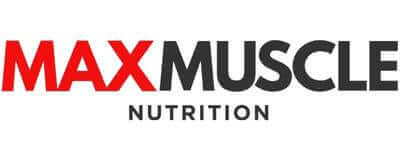Debunking Myths and Fueling Smarter Choices
You’ve likely seen this in the gym—or seen yourself Corgi-speed walking past the greens section at the grocery store—thinking: "Should I just grab a pill instead of a salad?"
Let’s smash that myth: Supplements are not whole foods in disguise, and while they can be helpful, they're not magic capsules. Here’s a friendly, science-backed guide to help you eat smart, supplement wisely, and level up your wellness—without the bro-science drama.
Whole Foods: Nature’s Multi-Vitamins (with Fiber, Flavor & Fire)
Whole foods—like fruits, veggies, whole grains, lean proteins—come packed with fiber, antioxidants, healthy fats, and the nutrient combos your body loves. These micronutrients work together in ways supplements simply can’t replicate.
-
Experts like the Mayo Clinic emphasize whole foods offer unmatched nutrition, fiber, and protective substances compared to individual supplements.
ifpa-fitness.com -
Studies show that populations consuming whole-food-rich diets—such as the Mediterranean diet—experience lower mortality and reduced risk of chronic diseases, compared to those relying on supplements alone.
Season HealthEatingWell -
Stanford nutrition researchers caution that nutrient synergy in whole foods often outperforms the isolated components in powdered or pill form.
Stanford Center on Longevity -
Harvard Health echoes this, advising to prioritize dietary improvements before jumping into supplements, since food delivers nutrients in their most potent and safest forms.
Harvard Health
Supplements: Helpful, But Not One-Size-Fits-All Solutions

Supplements have their place—especially when real food isn’t enough or when you have specific needs. But remember, they’re not without risks:
-
Not regulated like drugs. Many supplements can be tainted, mislabeled, or contain unexpected ingredients—and the FDA often takes action only after the damage is done.
Wikipedia+1 -
Over-supplementing isn’t always safer. Certain vitamins (like A, D, E) can be toxic at high levels—one study noted numerous poison center reports from excess intake.
Wikipedia -
Supplements don’t always translate to better health outcomes. Large-scale research shows little evidence of multivitamins preventing disease or improving longevity.
Wikipedia -
Misguided expectations. Taking a vitamin D or magnesium pill won’t solve fatigue or skin issues if your diet, sleep, or gut health isn’t addressed.
The Times of India
When Supplements Make Sense
Supplements can be a smart addition under the right circumstances:
-
If you have a documented deficiency—like low B12, vitamin D, or iron—a supplement may be essential.
Purdue ExtensionTIME -
Situations like pregnancy, age-related absorption issues, dietary restrictions (veganism), or medical conditions affecting digestion may warrant supplementation.
ifpa-fitness.comVNS Health -
Ensure you're using high-quality, third-party-tested products (look for USP, NSF, or ConsumerLab seals).
Stanford Center on LongevityThe Times of India
Smart Strategy: Eat the Rainbow, Then Supplement Safely

1. Focus on whole, nutrient-diverse meals with color and variety:
-
Think lean proteins, healthy fats, and produce of all shades.
-
A diverse plant-based plate supports microbiome health and supplying myriad micronutrients.
Wikipedia
2. Use supplements strategically if needed:
-
For deficiencies, dietary restrictions, or high-performance training periods.
-
Complement—not replace—a solid eating foundation.
3. Safety first:
-
Stick to recommended dosages.
-
Pay attention to the quality and timing of each supplement.
The Times of India
4. Treat supplements like assistants, not the coach:
Supplements enhance—you still need the fundamentals: food, sleep, hydration, and consistent training.
Final Slice of Wisdom

Whole foods are your body’s foundation—rich, complex, and life-supporting. Supplements can amplify that foundation when used wisely. Think of them as smart allies, not shortcuts.
Come Visit for Personalized Nutrition Help
Need guidance on whether to supplement and how to optimize your diet? Swing by Max Muscle Sports Nutrition – Stone Mountain for expert advice tailored just for you.
About the Author
Mike Pringle, former pro football star turned certified fitness and nutrition coach, owns Max Muscle Sports Nutrition – Stone Mountain. For over 15 years, Mike’s been helping clients balance real-world fitness with real-food strategies—plus just the right supplements when needed. Your health, your performance, made smarter.
Let’s keep growing smarter together!

